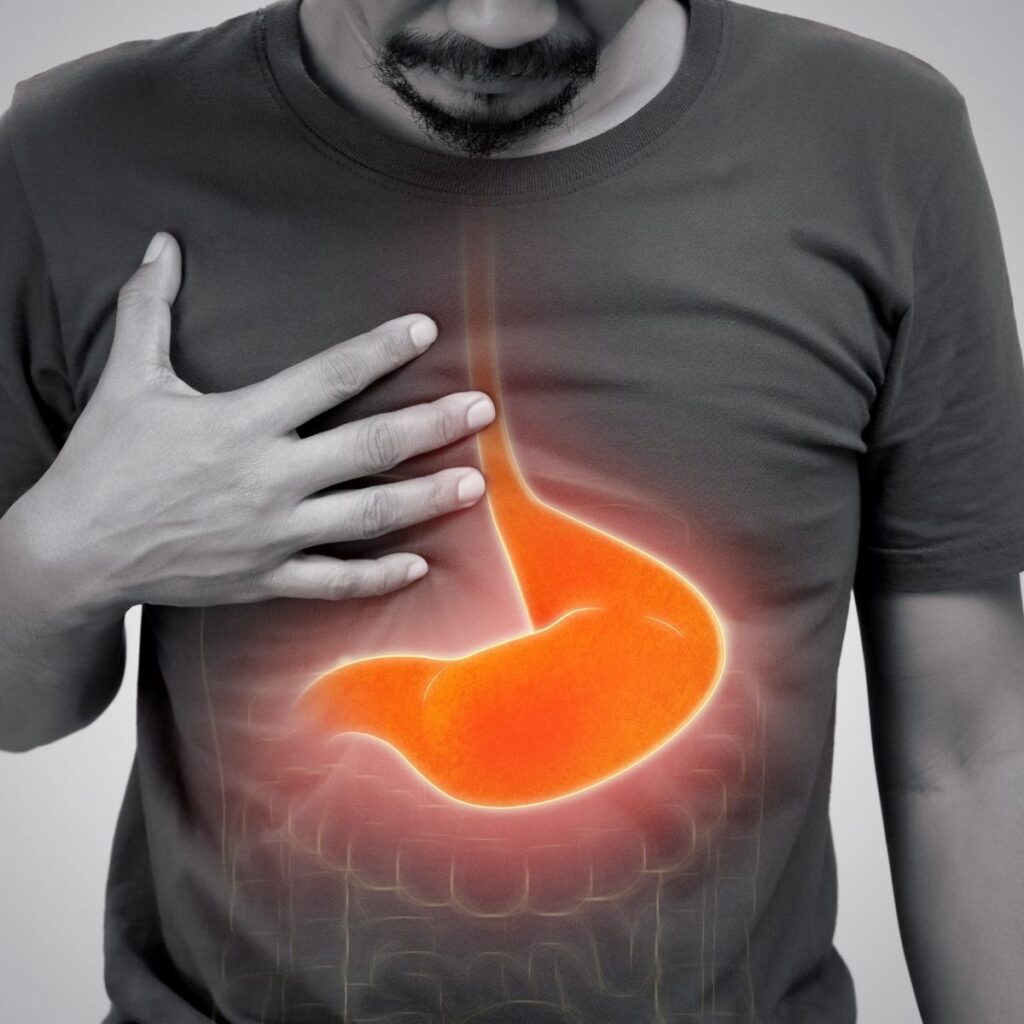Many people ignore stomach problems, thinking they’re just dealing with normal digestion issues or age-related changes. However, knowing the difference between ordinary stomach troubles and warning signs of something more serious could save your life.
Your body is clever at sending signals when something isn’t right, even before you realize there might be a problem. While these signs don’t always mean cancer, it’s important to know when you should talk to your doctor. Let’s look at six important warning signs that you shouldn’t ignore.
1. Feeling Full Too Quickly

Have you noticed that you can’t finish meals like you used to? This feeling of getting full after eating just a small amount of food is called early satiety, and it’s something that needs attention. Many people brush this off as just eating too fast or being less hungry than usual.
What makes this sign particularly important is when it happens consistently. If you find yourself unable to enjoy normal-sized portions or if you’re feeling uncomfortably full with just a few bites, your body might be trying to tell you something important. This happens because cancer cells can make your stomach less flexible and unable to hold as much food as before.
2. Unexplained Weight Loss

Losing weight without trying might seem like a welcome surprise, but when it happens without changes to your diet or exercise routine, it’s time to pay attention. Many people don’t realize that dropping more than 10 pounds without effort could be their body’s way of signaling that something isn’t right.
This kind of weight loss happens because cancer can change how your body processes food and burns calories. Your body might start using more energy than usual, or you might be eating less without realizing it because of stomach discomfort. Either way, unexplained weight loss deserves a conversation with your doctor.
3. Persistent Heartburn or Indigestion
Everyone experiences heartburn now and then, especially after a spicy meal or eating too close to bedtime. But when heartburn becomes a frequent uninvited guest at your dinner table, it’s time to take notice. Regular burning sensations in your chest or upper stomach area shouldn’t become your new normal.
What makes this warning sign tricky is that it’s easy to dismiss it as just ordinary indigestion. However, if you find yourself depending on antacids more than usual, or if they don’t seem to help like they used to, your body might be trying to tell you something more serious is going on. Persistent heartburn that lasts for weeks needs medical attention.

4. Ongoing Stomach Pain
Stomach pain that comes and goes is one thing, but persistent aching in your upper belly needs attention. This kind of pain might feel different from ordinary stomach aches, and it often doesn’t go away completely even when you take your usual remedies.
The pain might get worse after eating or feel more intense at night. Some people describe it as a constant gnawing sensation that’s different from normal indigestion. While stomach pain can have many causes, persistent pain that lasts more than a few weeks should never be ignored.
5. Trouble Swallowing
When swallowing becomes difficult, many people try to adapt by eating softer foods or taking smaller bites. This change in eating habits might happen so gradually that you don’t notice it at first. However, if you find yourself needing to swallow multiple times to get your food down, it’s time to pay attention.

This trouble with swallowing, known as dysphagia, might also come with a feeling of food getting stuck in your throat. You might notice yourself drinking more water to help food go down, or avoiding certain foods altogether because they’re harder to swallow. These changes in your eating habits deserve medical attention.
6. Ongoing Nausea or Vomiting
While everyone feels queasy sometimes, nausea that doesn’t go away needs attention. When this feeling of sickness persists day after day, or if you find yourself vomiting regularly without any obvious cause, your body might be sending you an important message.
This kind of persistent nausea feels different from common stomach bugs or food poisoning because it doesn’t go away after a few days. If you notice yourself feeling sick to your stomach more often than not, especially if it’s accompanied by vomiting, it’s important to talk to your doctor about what might be causing these symptoms.
When to See Your Doctor
Don’t wait too long to get checked if you notice any of these signs, especially if they last more than two weeks. Your doctor would much rather see you and find out everything is fine than have you wait until a small problem becomes a bigger one. Remember, early detection makes a huge difference in treatment success.
It’s important to understand that having these symptoms doesn’t automatically mean you have stomach cancer. Many other, less serious conditions can cause similar problems. However, the only way to know for sure is to have a healthcare professional check your symptoms. Your health is worth the time it takes to get checked out properly.
Taking Care of Yourself
Your health matters more than anything else. If you’ve noticed any of these warning signs, make an appointment with your doctor. Write down when your symptoms started and how they’ve changed over time. This information will help your doctor understand what’s going on and determine the best way to help you.
Remember, you know your body better than anyone else. If something doesn’t feel right, trust your instincts and seek medical advice. Taking action early could make all the difference in catching and treating potential problems before they become more serious. Your health is worth every bit of attention you give it.


